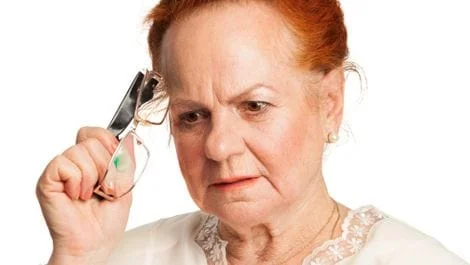Strategies For Living Well With Early Stage Alzheimer’s
Receiving the diagnosis of Alzheimer’s disease is overwhelming. Here are some tips to be resilient and in control.
- It's hard to hear the diagnosis, but it's better when you share your fears with trusted others so they can support you
- Forgetting is scary but it happens and we move on
- Create a place to always put things like a dish for house keys & cellphone and a basket for incoming bills
- Don't let embarrassment prevent you from telling someone you are lost
- Somedays will be more confusing than others
- Find ways on a daily basis to bring joy into your life, could be a great cup of coffee or enjoying favorite music
- Forgive yourself when you don't remember the right words
- Stress makes things worse, take a few deep slow breaths
- Make exercise a part of your daily routine
- It's easy to lose track of time
- Rest when you are tired
- You will tend to ask the same question without knowing, so remind others to be patient
- Keep active and do for others, it helps with your mood
- Stay with familiar and comfortable
If more information on living with early stage Alzheimer’s/dementia is helpful,contact me
Tips For How To Care For Me If I Get Dementia
- If I get dementia, I want my friends and family to embrace my reality. If I think my spouse is still alive, or if I think we’re visiting my parents for dinner, let me believe those things. I’ll be much happier for it.
- If I get dementia, I don’t want to be treated like a child. Talk to me like the adult that I am.
- If I get dementia, I still want to enjoy the things that I’ve always enjoyed. Help me find a way to exercise, read, and visit with friends.
- If I get dementia, ask me to tell you a story from my past.
- If I get dementia, and I become agitated, take the time to figure out what is bothering me.
- If I get dementia, treat me the way that you would want to be treated.
- If I get dementia, make sure that there are plenty of snacks for me in the house. Even now if I don’t eat I get angry, and if I have dementia, I may have trouble explaining what I need.
- If I get dementia, don’t talk about me as if I’m not in the room.
- If I get dementia, don’t feel guilty if you cannot care for me 24 hours a day, 7 days a week. It’s not your fault, and you’ve done your best. Find someone who can help you, or choose a great new place for me to live.
- If I get dementia, and I live in a dementia care community, please visit me often.
- If I get dementia, don’t act frustrated if I mix up names, events, or places. Take a deep breath. It’s not my fault.
- If I get dementia, make sure I always have my favorite music playing within earshot.
- If I get dementia, and I like to pick up items and carry them around, help me return those items to their original places.
- If I get dementia, don't exclude me from parties and family gatherings.
- If I get dementia, know that I still like receiving hugs or handshakes.
- If I get dementia, remember that I am still the person you know and love.
Mother’s Day Gifts For Caregivers
Did you know that between 60-70% of Alzheimer’s/dementia caregivers are women? These unsung heroes are family and paid caregivers. Often it’s not in their nature to ask and accept support but they need and deserve our acknowledgement and gifts of appreciation. So with Mother’s Day approaching, here are some welcomed suggestions:
- Time: Give a few hours that your caregiver can have for herself. If you can’t provide the respite care yourself, turn to a trusted Home Care Agency. We all need some down time to replenish.
- Spa treatment or gym membership: Give the gift of a message, manicure, pedicure, facial –some or all of the above.
- Dinner and a movie, lecture or concert. No doubt caregivers deserve time out and need to be with people. Give a gift certificate for two and let the caregiver do the asking.
- Regular scheduled visit. Caregivers need company. They often complain of isolation. Visits can be a combination of phone and in person visits on a weekly or more frequent basis.
- Medical Alert System: Sometimes a caregiver is afraid to step away and it is common for individuals with dementia to wander. A medical alert system will give a caregiver peace of mind.
- Gift certificate or gift cards. Many family members take unpaid leave or cut down on their work hours to provide care. Gift cards and cash are well earned and always welcomed.
Mother’s Day can be an opportunity to give a gift of unburdening a responsibility. For example, this could be the right time to offer taking over tasks such as bill paying or accompanying either the caregiver or the family member with dementia to an appointment.
Want to brainstorm more ideas for a meaningful mother’s day gift specific to your some special? contact me






